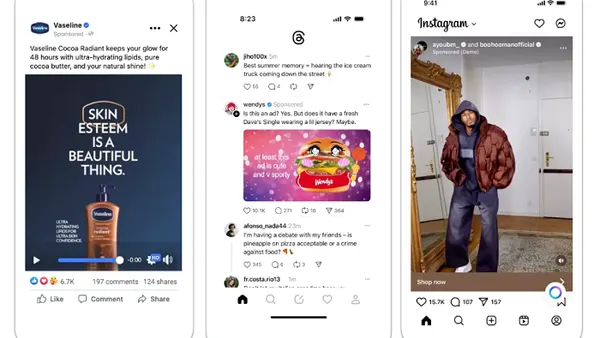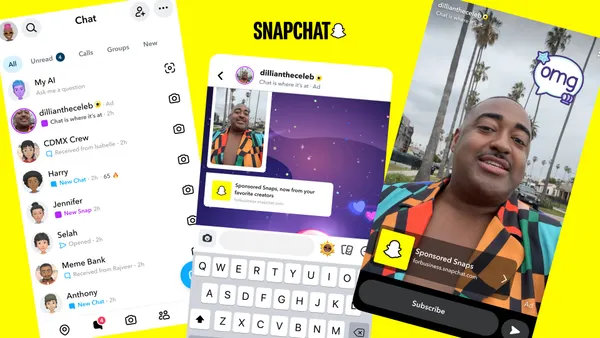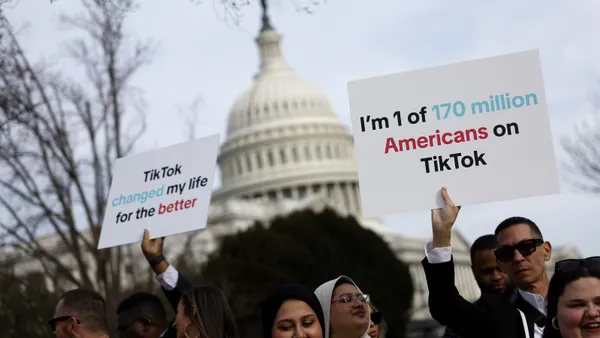Brief:
- Video-chat app Houseparty is developing a business model that relies more on in-app purchases than ad sales. The effort started recently as talk-show host Ellen DeGeneres used Houseparty to play a round of the game Heads Up! on her show with pop singer Christina Aguilera, The Wall Street Journal reported.
- Users who play Heads Up! through Houseparty get the first three games free before being charged 99 cents per game. Heads Up! was played nearly 4 million times during the two weeks after DeGeneres showcased the Houseparty version.
- Houseparty plans to add more games and other paid offerings based on interests such as cooking, crafting, fitness, wellness and homework. Sima Sistani, Houseparty‘s co-founder and COO, said the company wants to focus on smaller, intimate groups and sustainable revenue growth, the Journal reported.
Insight:
The dominance of tech giants like Google, Facebook — and increasingly, Amazon — in the digital ad market has been discouraging for other startups trying to develop ad-supported mobile apps. Tech entrepreneurs can look no further than Snap's experience with stalled audience growth for Snapchat. Facebook saw the competitive threat from Snapchat and copied key features like Stories to keep mobile users engaged with its platform. Houseparty has faced a similar threat from Facebook, which is testing a video-chat app called Bonfire that hasn't been released in the United States.
Like Snapchat, Houseparty has a very engaged, younger audience that is coveted by major advertisers. About 60% of Houseparty users are younger than 24 years old. Their time spent on the app has grown to about 60 minutes currently from 51 minutes in September 2017, parent company Life on Air told the Journal. Houseparty's focus on people who want to interact with smaller groups is a key differentiator from other social media apps like Facebook, Instagram and Twitter.
Games developers have been pioneers in monetizing their content with in-app purchases, as best exemplified by Epic Games’ hugely successful battle royale videogame Fortnite, which allows players to pay for additional features in the game and to customize their avatars. Fortnite has more than 200 million registered players who have generated more than $1 billion in revenue so far, The Wall Street Journal reported last month. Fortnite also doubles as a social network for mostly young males who gather to share their enthusiasm for the game.











